By Scott Bland
Over the last 30 years there have been two trends in our educational system and the construction industry that have been slowly and steadily creating an issue that has the potential to create dramatic problems within our economy. The construction industry that is critical to our economic health is experiencing a massive talent drain that is not being renewed. Fortunately, there is a plan in place to bring talent back to the industry and reverse the stigma that has been created around jobs in construction. It’s important to first look at the two trends that created the issue.
During the last 30 plus years our education industry has been a “college or bust” model in which students were taught from the perspective that going to college after graduation was the only path to success. As a result, careers that didn’t involve a college degree were not presented as desirable paths to take after graduation. This has created a stigma against jobs in the construction industry and caused students to look at other options even if they have an interest and ability to work within the trades.
At the same time the education industry was steering students away from the construction industry, the industry itself was becoming more and more diverse and technically complicated. The process of building a home or commercial building has evolved far beyond what the shop classes of the 1970’s and 80’s were able to show students. From the miles of electrical and network wiring to the framing calculations involved in high pitched roofs and vaulted ceilings, the construction industry can no longer get by with an un-educated workforce.
What is not being taught to our high school students is the fact that there are jobs within the construction industry that pay at rates the same as or in many cases higher than jobs requiring 4 year degrees. A student graduating high school with a background in construction trades and who takes post graduate classes to receive certifications in the industry are suddenly qualified for hundreds of careers with pay ranges starting from $30 per hour and up. The lack of a talented applicant pool is so dire at this point; many trades companies will put these individuals into apprentice positions and work with them as they earn the certifications they need.
What is needed is a program within the high school system that a student who is interested in careers within the construction industry can get specific class instruction as well as hands on training in the field. We are so fortunate in Central Texas to have the Greater Waco Advanced Manufacturing Academy (GWAMA) that can serve as the home for a construction sciences program. One of the many advantages to GWAMA is that it is open to students from any district in Central Texas. The GWAMA program has already had tremendous success within the welding, metalworking, and health care industries and there is space available for a construction services division.
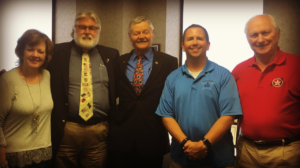
A few of the local leaders who have been working to plan the Greater Waco Construction Sciences Academy.
The program that is being proposed would begin in the 10th grade and would be exclusively taught in the classroom in that first year. The first year would be the time when the students would be exposed to all facets of the construction industry as well as being taught the basics of construction. Students would be taught the basics of plumbing, electrical, heating and air conditioning, framing, and masonry so they could begin to get a feel for their primary interest. This year would also involve receiving their OSHA certifications and CPR training to emphasize the importance of safety on the job sites.
In the second year, the students would have much more specific classroom training geared towards their primary areas of interest. At least half of their time will be spent on job sites to begin get a feel for what a career in the industry is really like. NeighborWorks Waco has dedicated a yearly construction site for students in the program to receive instruction in their second year.
In the final year the students will apply for, interview, and work within the industry on a paid internship. The students will have one day a week in the classroom and spend the other 4 days in a paid internship at a company within their primary area of interest. This is the model that companies within the industry are encouraging and the model that they will support by providing these internships. From the industry perspective, this gives them the opportunity to make sure students are being exposed to the concepts and practices that give them the best chance at being successful.
For the students within the program, they will graduate with a diploma that has endorsements from the Heart of Texas Builder’s Association, the Texas Association of Builder’s and the Waco Association of General Contractors. That endorsement is the way that a student can show a potential employer that they have training and instruction that moves them ahead of other applicants. That endorsement may also place them further ahead within an advanced certification program.
The message that needs to be out there is that the construction industry is no longer an industry to be stigmatized as a place for students that can’t make it in college. The salaries, benefits, and security of jobs in construction no longer lags behind professions requiring advanced degrees. The complexities of the industry also require students who are capable of working with their minds just as well as working with their hands.
The construction sciences program at GWAMA, if approved, will provide students with an alternate path to success from the traditional “college only” model. It will provide a reason to continue going to school for those students who have no interest or desire to go to college. For a student whose family is involved in the construction industry, it will provide a validation and sense of pride in that work which has been missing for far too long. And for the student who desires a college education but cannot see any possible way to pay the costs – consider the benefits of having a high paying job in the construction trades to earn money to pay for that college degree! This program provides a pathway to a career that can pay those tuition costs. A young person who has construction industry certifications, and a 4-year degree, and who has no student debt is a tremendous benefit to our economy. However, a young person with only a 4-year degree and who owes thousands in student loan debt is sadly far more common.
(Note: The Waco ISD Board of Trustees will be hearing an update on the Construction Academy at their October 20 board meeting.)
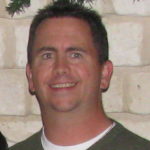 Scott Bland was born and raised in Waco. He is an alumnus of Baylor University. He worked for Highland Homes in the Dallas area from 1998 to 2001, then joined the United States Secret Service as a Special Agent after the 9/11 attacks. He retired his commission in late 2006 to return to Waco and take over the family business, Jim Bland Construction, where he has served as Owner and President of the company for the last 10 years. He is currently the President of the Heart of Texas Builder’s Association as well as a member of the Board of Directors for the Greater Waco Chamber of Commerce.
Scott Bland was born and raised in Waco. He is an alumnus of Baylor University. He worked for Highland Homes in the Dallas area from 1998 to 2001, then joined the United States Secret Service as a Special Agent after the 9/11 attacks. He retired his commission in late 2006 to return to Waco and take over the family business, Jim Bland Construction, where he has served as Owner and President of the company for the last 10 years. He is currently the President of the Heart of Texas Builder’s Association as well as a member of the Board of Directors for the Greater Waco Chamber of Commerce.
The Act Locally Waco blog publishes posts with a connection to these aspirations for Waco. If you are interested in writing for the Act Locally Waco Blog, please email [email protected] for more information.
By Craig Nash
I don’t remember how old I was. Old enough to remember, I suppose. If the research I conducted on the historical conditions that led to this memory is correct, probably somewhere between three and six. It’s one of those cloudy early-life memories, the type you attach details and, more importantly, meaning to decades after it occurs. It’s also one of those random memories that isn’t constantly present, but presents itself at random times throughout my life, reminding me of how transformative the experience was, simply by virtue of its memory sticking around.
We were at the baseball field behind the school, my mom, sister and I. I want to say it was cold, but perhaps that is my mind adding editorial flourish to mimic what I was sensing. There was a crowd, but not for a game. I remember feeling out of place, like everyone but us knew the drill– when the truck would arrive, how to line up, what identification to have ready.
I remember my sister being excited, like she knew something I didn’t. When the truck arrived and backed up to the line, and it was our turn, she ran into the trailer with the paper bag as my mom told her what to put in it.
On our walk home, she took the pre-packaged foods out one-by-one to show us what we had. There’s only one thing I remember about the experience that I know is completely true, because it was so out of the ordinary. The food had generic packaging. Not “generic” in the “off brand, purchased at a discount store” sense, but “generic” in the sense that the packages and labels on the cans were white with simple black lettering identifying what was inside: Beans. Cheese. Noodles. Corn.
It was like food packages in the cartoons.
I remember being intrigued by this. If I could have explained what was going on in my mind, I would have said, “Mom, this is weird. This food doesn’t look like the kind we get in the store.” But in later years when the memory would peak back into my brain, the intrigue turned to shame as I realized what all this meant.
We were poor.
Dad worked for the Kelly Springfield Tire Company in Tyler, like most of the dads in the small town I grew up in. It was a union job, which was good when it was good, but not so good when layoffs and strikes occurred. It also meant that we were never in severe need for too long. (This wouldn’t be the case for Kelly families decades later, when the company closed the plant after demanding more and more concessions from its workers.) But the times of scarcity, though rare, were enough to leave a mark on me.
I often think about this experience as I am out and about, observing the many ways in which Wacoans pitch in to help our hungry citizens. I’m thankful there was a “safety net” for my family, just like there is for families all across our city. But I also think about the shame I felt at being in temporary poverty, what that did to my psyche, and I wonder about the future memories of children who are in perpetual poverty. This is why programs like SNAP and WIC are so important, (aside from the fact that they are proven to work.) They give parents the dignity of walking down a grocery store aisle with their children and making choices for their family, like every other family in the community.
It’s why I am thankful that school districts like Waco and La Vega ISD offer school breakfast and lunch free of charge to all students, so no child has to be singled out based on their ability to pay.
Our inclination to help is a good one. And sometimes, like when half a town loses its job due to layoffs, extraordinary measures need to be taken to get food to people in extraordinary ways. But my hope and prayer is that we will strive to find ways to get food to people in ordinary ways, that draws attention neither to the giver or the receiver, so that the memories of our children will only be those of food at the table, not how it got there.
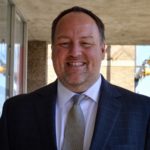 Craig Nash has lived in Waco since 2000. Since then he has worked at Baylor, been a seminary student, managed a hotel restaurant, been the “Barnes and Noble guy,” pastored a church and once again works for Baylor through the Texas Hunger Initiative. He lives with his dog Jane, religiously re-watches the same 4 series on Netflix over and over again, and considers himself an amateur country music historian.
Craig Nash has lived in Waco since 2000. Since then he has worked at Baylor, been a seminary student, managed a hotel restaurant, been the “Barnes and Noble guy,” pastored a church and once again works for Baylor through the Texas Hunger Initiative. He lives with his dog Jane, religiously re-watches the same 4 series on Netflix over and over again, and considers himself an amateur country music historian.
The Act Locally Waco blog publishes posts with a connection to these aspirations for Waco. If you are interested in writing for the Act Locally Waco Blog, please email [email protected] for more information.
By Rolando Rodriguez Soto
(This post is part of an on-going series about Downtown Waco. In a sense, Downtown is “everybody’s neighborhood.” In this series of blog posts we hope to contribute to the on-going conversation in Waco about what it takes to have a great downtown, and what we want for our own “Wacotown.” To see all the posts in this series, click here: Downtown Waco. – ABT)
The goal for revitalizing Downtown Waco is to create an all-inclusive downtown area that encourages people of all ages to visit on a regular basis. One particularly important demographic is the millennial generation, roughly defined as those who graduated from high school in the year 2000 or later. This group includes college students and young professionals.
I met with several young professionals and college students who were raised in Waco to hear what they wanted from downtown. I focused on native Wacoans to get the perspective of people who have been exposed to downtown before and after the recent growth in downtown development.
Unsurprisingly, different people want and need different things from downtown – different things motivate them to make the trip to Waco’s city center. Some prefer a quiet place to study, some want to relax during the day with family, while others prefer a fun environment that can last all night.
Creating a livable downtown will mean establishing a balanced environment that appeals to a variety of personalities and accommodates different schedules. For example, Anthony Albiter and Angeli Mondragon put a high priority on daytime activities they can enjoy with their families. Richard Fuentes and Leonor Campos, on the other hand, crave more nightlife with music and entertainment.
Anthony was raised in the north Waco area. He received his associate’s degree at McLennan Community College, and he is currently a bank teller. Even though he attended high school at A. J. Moore Academy (now Indian Spring Middle School), he did not necessarily experience most of downtown until recently.
“Downtown would benefit from having more hangout spots besides bars because some people don’t really enjoy bars,” Albiter said. “Or having a plaza so families can go enjoy a nice walk.”
Angeli was raised in the south Waco area near downtown. She now lives in the Sanger Heights neighborhood and has two children—one 2 year old and one 10 month old. She values the walkability of downtown because she has to travel with a toddler and a baby.
“I usually go to downtown for food or Spice Village,” Angeli says. “I’d probably go more often if there were more things for me do with the kids. I would love if there was a festival for toddlers or a place like My Little Play Palace in downtown to tire out the kids, so I can go shopping afterwards.”
Both Anthony and Angeli mentioned that having opportunities like the Waco Wonderland, Cameron Park and the food trucks are great, and there could still be more regular activities during the day for a family to enjoy.
In contrast, to Anthony and Angeli’s familial perspective, Richard and Leonor are more attracted to a downtown area with a dynamic nightlife.
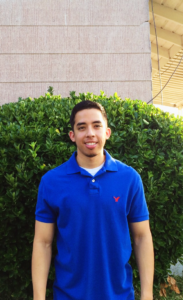
Richard Fuentes
Richard grew up in the North Waco neighborhood, and he currently attends Baylor University. He particularly enjoys First Fridays when businesses stay open late during the first Friday of every month. Fuentes often goes with friends to grab a drink at a bar in downtown.
“I would like to see more shops and restaurants open for business, especially during the night,” Fuentes said. “An ideal downtown Waco would be a place where you can go during a night out and enjoy the whole night with lights illuminating downtown to give people the option to walk boundlessly almost like a mini city within Waco.”
Leonor was raised in Lacy Lakeview near Waco, and she currently lives near the downtown area. She values the historic and art aspects of downtown as well as the opportunity for live music and entertainment.
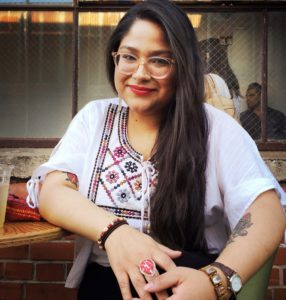
Leonor Campos
“Downtown is slowly getting better with festivals and activities because each year they realize what didn’t work and what activities are getting more popular,” Campos said. “Before there were only club style bars, and now we are starting to have more live music.”
For Teresa Soto and Josh Arias it is not the businesses or restaurants offered during the day nor the bars or clubs open during the night that drew them from Hewitt to downtown — it was Pokémon Go.
“Before Pokemon Go, I wouldn’t go to downtown,” Teresa says. “Pokemon Go brought me to downtown, which made me more comfortable going because before I didn’t see it as a safe place.”
Now after experiencing downtown, Teresa sees downtown as a nice place with food trucks, historic buildings, great restaurants, and people, so now she goes every other weekend. Her suggestion for improvement? Make downtown more pet friendly with pet parks, and businesses and restaurants that allow pets.
For Josh, living in Hewitt means he really needs a reason to go into downtown. The food trucks and Cameron Park are great reasons to go, but downtown still needs something more to really encourage people.
“There should be more festivals and block parties with music for the community,” Josh says. “I would also love old school gaming arcades.”

Yesenia Lares-Martinez
Yesenia Lares-Martinez lived in Waco during her four years of high school until she moved to Austin to attend the University of Texas, but she returns to Waco regularly to visit friends. She offers an interesting perspective because she has been exposed to the downtown areas in both Austin and Waco.
“There is definitely more diversity and things to do in downtown Austin,” Lares-Martinez said. “I feel like in downtown Waco, it’s just one street that caters more to Baylor students and the middle and upper-middle class. There should be more clubs and bars catered to different identity groups.”
These Waco millennials seem most interested in developing a lively downtown area that has entertainment and activities throughout the day and night. Millennials and their wishes, however, are only part of the picture… what about high profile office buildings? Apartments and lofts? Easily accessible parking? Or stores that carry daily essentials such as groceries and supplies?
What is it that you want from Downtown Waco? Leave a comment below. I would love to hear what you have to say.
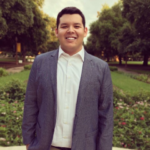 Rolando Rodriguez Soto was raised in Waco, TX, and he is currently attending Baylor University with plans to graduate in December 2016 with a Bachelor of Arts in Professional Writing & Rhetoric. After graduation, he hopes to work in Waco in the nonprofit sector to help realize the full potential of Waco. His long term goals include hopefully creating and publishing creative work whether that is a novel, short story or even a television show.
Rolando Rodriguez Soto was raised in Waco, TX, and he is currently attending Baylor University with plans to graduate in December 2016 with a Bachelor of Arts in Professional Writing & Rhetoric. After graduation, he hopes to work in Waco in the nonprofit sector to help realize the full potential of Waco. His long term goals include hopefully creating and publishing creative work whether that is a novel, short story or even a television show.
The Act Locally Waco blog publishes posts with a connection to these Aspirations for Waco. If you are interested in writing for the Act Locally Waco Blog, please email [email protected] for more information.
by Dena Quigley
October 15th is National Pregnancy and Infant Loss Remembrance Day. Did you know? Five years ago, I was completely and blissfully ignorant. But since then I’ve learned that one in four women will have a pregnancy that ends in either a stillbirth or a miscarriage… one in four! That means when I go to dinner with three friends, one of us should expect such a loss. Multiply that by several tables of women and this number quickly increases. It’s an unpopular conversation starter for sure, but occasionally we need to be made uncomfortable so that we can be made aware.
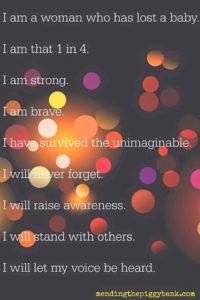 Jay Neugeboren writes, “A wife who loses a husband is called a widow. A husband who loses a wife is called a widower. A child who loses his parents is called an orphan. There is no word for a parent who loses a child. That’s how awful the loss is.” As a mother who has lost her daughter, I can relate to his words and I can attest to the loneliness that comes with such a loss. At Cradled, we often refer to the loss of a pregnancy as a “silent sorrow.” Not everyone can or is willing to relate to such a loss. I’ve had friends literally and figuratively turn their backs on my grief, leaving my husband and I to not only pick up the pieces of our tattered hearts, but to seek out and find new community. I am fortunate that I found Cradled by Love, Hope and Healing, a local group that provides support and resources for women and families experiencing the loss of a baby through miscarriage, stillbirth, early infant loss, and infertility. They gave me shelter to express my fears and sadness, and the support and love I needed to move forward.
Jay Neugeboren writes, “A wife who loses a husband is called a widow. A husband who loses a wife is called a widower. A child who loses his parents is called an orphan. There is no word for a parent who loses a child. That’s how awful the loss is.” As a mother who has lost her daughter, I can relate to his words and I can attest to the loneliness that comes with such a loss. At Cradled, we often refer to the loss of a pregnancy as a “silent sorrow.” Not everyone can or is willing to relate to such a loss. I’ve had friends literally and figuratively turn their backs on my grief, leaving my husband and I to not only pick up the pieces of our tattered hearts, but to seek out and find new community. I am fortunate that I found Cradled by Love, Hope and Healing, a local group that provides support and resources for women and families experiencing the loss of a baby through miscarriage, stillbirth, early infant loss, and infertility. They gave me shelter to express my fears and sadness, and the support and love I needed to move forward.
At Cradled, we are not happy to meet you or have you attend a support group, because that means you have suffered as no parent should suffer. But we will meet you in your grief and loss and walk with you through your journey. We offer empathy, and are willing to climb down into the hole with you, partake in your silent sorrow, and share our experiences along with other practical techniques to help ensure that you won’t be in the hole always. For some families this journey is relatively short, and for others who come to Cradled, we walk a mile, and then a mile more, and another if needed. It is an honor to be with them.
To the other three women who never experience a loss, we, the one in four, celebrate your successful pregnancies with you. You deserve happiness and joy through the life of your baby. All we ask is that you do not forget our babies. Our babies meant just as much to us as yours do to you. We understand that it is difficult to know what to say, but sometimes “I’m sorry, I will always remember” is just enough.
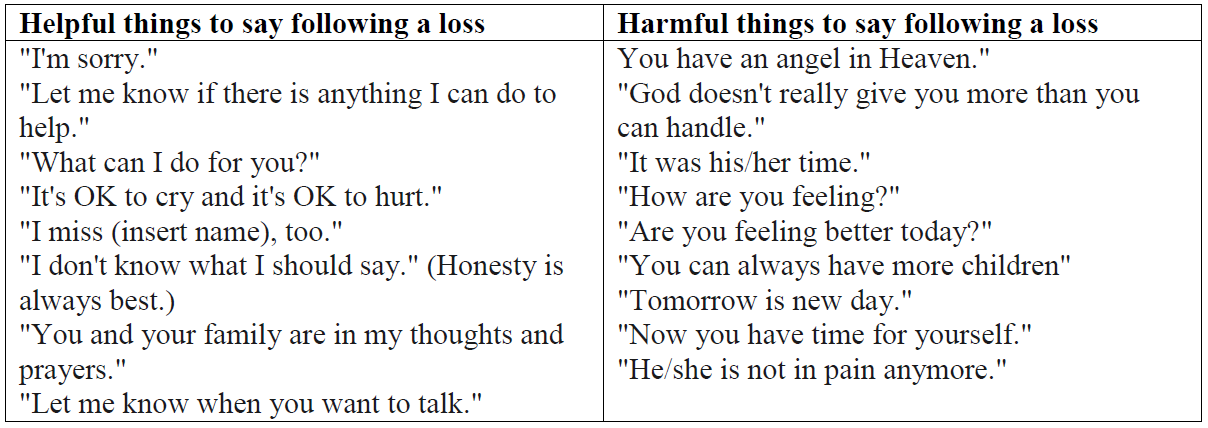
If you, or someone you know, is one in four, please know that Cradled is here for you. If your loss was yesterday, last year or last decade, we are ready to listen to your story. Please visit our website at Cradled.org for more information about upcoming events and support groups.
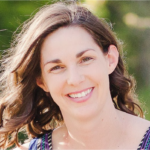 Dena Quigley is a recent graduate of Baylor University having earned her PhD in Education. She is a wife and a mother of two beautiful boys on earth and a daughter in heaven. She has been a volunteer with Cradled by Love, Hope and Healing since 2013, and regularly co-leads support groups and is currently help to develop new curriculum.
Dena Quigley is a recent graduate of Baylor University having earned her PhD in Education. She is a wife and a mother of two beautiful boys on earth and a daughter in heaven. She has been a volunteer with Cradled by Love, Hope and Healing since 2013, and regularly co-leads support groups and is currently help to develop new curriculum.
The Act Locally Waco blog publishes posts with a connection to these aspirations for Waco. If you are interested in writing for the Act Locally Waco Blog, please email [email protected] for more information.
By Jenuine Poetess
This past weekend I traveled back home to Los Angeles to celebrate the Quinceañera—15th Anniversary—of Tia Chucha’s Centro Cultural. I became involved with this centro in 2009 and within this community, my authentic, whole self was born and raised. It was there I first called myself a poet, an artist, a community organizer. It was there I learned how to use the arts as a tool for transformation—personally and throughout a city and beyond. It was there I forged bonds with mentors who have become family. It is there where I found home, and safe space to explore, discover, and become my genuine self.
I founded In the Words of Womyn (ITWOW) in 2010 and the original writing circle continues at Tia Chucha’s today. At the circle I attended on Friday evening, I met a young woman who had been coming to circle for two years since she was 16 years old. She shared with me how much the space meant to her, that when she first attended, she was too shy to read her own work; that she didn’t really believe in herself; that she didn’t know how to use her own voice. Now, she writes with bold bravery and shares aloud. I witnessed her receive an award at the quinceañera for her completion of an internship program—a program she said she never would have had the courage to apply for had she not been a part of the ITWOW circle.
That evening I joined another poet and musician as co-features for the weekly open mic event at Tia Chucha’s. I watched this artist thriving in her creative practices and thought about the years ago before she was empowered to speak her truths and indulge in her love of son jarocho music and dance. We shared the stage together—her playing while I recited a poem—and we celebrated our journeys into becoming ourselves.
On Monday I lead a womyn’s writing circle in El Sereno, Las Lunas Locas which was founded by an alumna of ITWOW two years ago. I see the abundant fruits of these creative labors yielding nourishing harvests year after year in this place I call home.
And I consider all we have planted and grown in Waco since I arrived in 2012. I once made a family tree of all the programming, events, publications, and opportunities that have been born out of my experiences at Tia Chucha’s. And while Sylmar, CA and Waco, Texas are 1400 miles apart, these two communities hold my heart, and are the locations of my creative investments. I think about the ways community arts programming shaped, inspired, and prepared me to come to Waco and to do the work I have been doing—alongside so many other diligent community organizers. I work with intention to create similar safe spaces for people to explore, create, and thrive into their exquisitely diverse identities.
In the four years I have been here collaborating with others we have celebrated the birth of programs like: Waco Poets Society, Heart of Texas ITWOW, Central Texas Artist Collective, Black Poets Society, and Yellow Chair Press. We have grown the annual WCAF WordFest from a handful of events on one afternoon to a full-grown festival spanning three days. I brought the 100Thousand Artists for Change event to Waco and for the first time this year Waco artists hosted 2 events in conjunction with this global project. Inspired and encouraged by Waco’s involvement, artists in Lubbock, Texas began holding 100Thousand Artist for Change events and transformed their community using their event as a fund-raiser for a local charity. This summer, inspired by the work of Waco Poets Society and Central Texas Artist Collective, Nicole Metts founded the Copperas Cove Writer’s Society.
I share all of this bounty not to shine the spotlight on myself and my colleagues, but to highlight the creative contagion that can occur when we are diligent to invest in fostering creative sustainability. This is work that attends to the needs of all of us as humans to imagine, to explore, to wonder, and to make. When we create, protect, and sustain safe spaces for this process, we invest into whole-person development, which further enriches our communities.
Supporting the arts at every level—from arts education in schools and colleges, to art galleries and spaces, to grassroots initiatives and programming—is an investment that will yield infinite returns. We are building a creative legacy, one that has the capacity to stretch into countless generations next. We are literally creating abundance.
I celebrate with joy and gratitude, the place from which I come and I look forward with hope and inspiration to continuing the art/work we are making in Waco. These are indeed exciting times. Inside the vast womb of art, we have such a capacity to heal, to nurture, to empower, and to thrive. As we head into a season laden with the giving of gifts, I encourage and challenge you to not only shop locally, but to also support local artists—there will be a number of opportunities to purchase local artisan goods at the Waco Downtown Farmers Market, at Waco Wonderland, and at various other pop-up art stores. Keep in touch and informed with Central Texas Artist Collective for all the details!
 Jenuine Poetess is an artist, visionary, and community organizer. In 2010, she founded In the Words of Womyn (ITWOW), an international, grass-roots, written and spoken-word arts project with chapters throughout Los Angeles, CA; Waco, TX; and Lebanon. Jenuine is the founder of Waco Poets Society and co-founder of the Central Texas Artist Collective. She writes, organizes, and creates rooted in the fierce conviction that holding intentional space, access, and opportunity for all people to foster their creative health is a matter of justice and is a vital asset to the sustainable thriving of communities. She currently lives and poems in Central Texas where she enjoys finding new ways to disrupt the homeostasis of her city. You can contact her at: j[email protected].
Jenuine Poetess is an artist, visionary, and community organizer. In 2010, she founded In the Words of Womyn (ITWOW), an international, grass-roots, written and spoken-word arts project with chapters throughout Los Angeles, CA; Waco, TX; and Lebanon. Jenuine is the founder of Waco Poets Society and co-founder of the Central Texas Artist Collective. She writes, organizes, and creates rooted in the fierce conviction that holding intentional space, access, and opportunity for all people to foster their creative health is a matter of justice and is a vital asset to the sustainable thriving of communities. She currently lives and poems in Central Texas where she enjoys finding new ways to disrupt the homeostasis of her city. You can contact her at: j[email protected].
The Act Locally Waco blog publishes posts with a connection to these aspirations for Waco. If you are interested in writing for the Act Locally Waco Blog, please email [email protected] for more information.
By Rolando Rodriguez Soto
Every college student knows about the dreaded Free Application for Federal Student Aid (FAFSA) they have to apply for each year. This year, big changes to the FAFSA will make it easier for students moving forward.
On Sept. 14, 2015, President Obama announced starting with the 2017-2018 FAFSA, students will be able to file as early as October 1 rather than beginning on January 1. This means the FAFSA for next school year starting in fall 2017 is now open.
Don’t panic! I understand you submitted your previous FAFSA just a few months ago! You are probably thinking, “But I don’t know my 2016 tax information yet!” That’s OK. For this next FAFSA you will be using your 2015 tax information–the same tax information you used on your 2016-2017 FAFSA earlier this year.
Beginning with the 2017-2018 FAFSA, students will be using their parents’ income tax information (as well as the students’ if appropriate) from the previous year, which for this upcoming FAFSA will be the 2015 tax return rather than their 2016 tax return. This means during this transitional year, students will be using the same tax information they used on their 2016-2017 FAFSA earlier this year.
“Previously the FAFSA would open in January, and you would have to use the tax return from the year that just ended, but in January, parents don’t have their W2s yet,” said Jessica McAdoo, MAC & Scholarship Coordinator for the MAC College Money Program. “So a lot of students and parents would have to put an income estimate and go back and update it before the March deadline.”
The new FAFSA availability date will make the financial aid process smoother for students. Since parents and students have already completed their 2015 tax return, it should have been already processed through the Internal Revenue Service (IRS), and they will no longer need to use estimates from the prior year.

With the new process, students will be able to use the Data Retrieval Tool to upload their tax information directly onto the FAFSA from the IRS. For most students this means they will no longer need to go back and update their estimated figures on their FAFSA. Since FAFSA will be sending schools tax information directly from the IRS, fewer students will need to complete the verification process.
If you are a high school senior, you may still be sending out admission applications, taking tours of campuses or making the decision of where you want to spend the next years of your education. There is no rush. Students do not need to apply for admission to a school before they list it on their FAFSA.
The priority deadline for state aid is still March 15, so be sure to complete the FAFSA process before that date. Some schools may have changed their priority deadline for FAFSA, so check with your prospective or current schools to verify their deadlines.
The Texas Application for State Financial Aid (TASFA) for non-citizens classified as Texas residents has recently announced their application is also now available to students. Similar to the FAFSA, students will also use their 2015 tax return to complete the form for fall 2017.
Your family’s financial situation may have changed since your parents submitted their 2015 tax return and you filed your previous FAFSA (if you are a returning student). You must still report the same tax information from 2015 on your FAFSA.
“If your financial information has changed you may have to file special circumstance or loss of income paperwork with your financial aid office at your school,” McAdoo said.
Federal Student Aid ID
Before students can begin the financial aid process, they will need to create a federal student aid ID (FSA ID). This form of identification replaced the PIN in spring 2015. Rather than using a four-digit number, students and parents will now create their own username and password. If you haven’t logged in to your FAFSA since May 10, 2015, you will need to create an FSA ID before you can access a federal student aid website.
FAFSA made the change to the FSA ID to increase security. The username and password is more secure than a four-digit number. The new FSA ID will also allow parents and students to retrieve forgotten passwords and log in using an email address.
Both the student and one of his or her parent will need to create an FSA ID. The student ID will be used to log in and sign the FAFSA whereas the parent ID will be only be used to sign the FAFSA.
Students and parents can create their FSA ID at fsaid.ed.gov.
MAC College Money Program
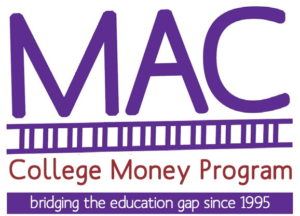 All of this new information on the FAFSA may sound daunting. The MAC College Money Program, a program of Waco Foundation, is available to all students needing assistance with FAFSA, TASFA and financial aid.
All of this new information on the FAFSA may sound daunting. The MAC College Money Program, a program of Waco Foundation, is available to all students needing assistance with FAFSA, TASFA and financial aid.
“The MAC Program helps any student whether you are going to college for the first time or you are returning to college,” McAdoo said. “We fill out the FAFSA at no cost, answer questions about the whole financial aid process, and we are a resource for all students and parents.”
MAC helps 1,500 McLennan County high school graduates annual with the financial aid process. Robbie Stabeno, Director of Scholarships & the MAC Program, and Jessica McAdoo, MAC & Scholarship Coordinator, are available to assist anyone in the county who needs help completing the FAFSA.
If you need assistance, contact the office at (254) 752-9457 to make an appointment.
 Rolando Rodriguez Soto was raised in Waco, TX, and he is currently attending Baylor University with plans to graduate in December 2016 with a Bachelor of Arts in Professional Writing & Rhetoric. After graduation, he hopes to work in Waco in the nonprofit sector to help realize the full potential of Waco. His long term goals include hopefully creating and publishing creative work whether that is a novel, short story or even a television show.
Rolando Rodriguez Soto was raised in Waco, TX, and he is currently attending Baylor University with plans to graduate in December 2016 with a Bachelor of Arts in Professional Writing & Rhetoric. After graduation, he hopes to work in Waco in the nonprofit sector to help realize the full potential of Waco. His long term goals include hopefully creating and publishing creative work whether that is a novel, short story or even a television show.
The Act Locally Waco blog publishes posts with a connection to these Aspirations for Waco. If you are interested in writing for the Act Locally Waco Blog, please email [email protected] for more information.
By Courtney Restivo Wollard
Did you know that not eating enough fresh produce can lead to poor health problems such as obesity and heart disease? Data shows McLennan County residents don’t eat enough fruits or vegetables.
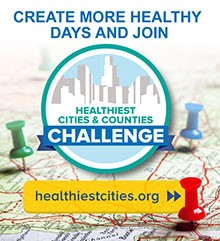 Wacoans are making great strides to eat more fruits and vegetables, so we have been accepted as one of 50 communities to compete in the National Healthy Cities and Counties Challenge to increase healthy eating of fresh produce in order to improve the health of residents. The challenge is a partnership between the Aetna Foundation, the American Public Health Association and the National Association of Counties and will allow for winners able to show measurable change over the course of several years to be awarded prize money for their community.
Wacoans are making great strides to eat more fruits and vegetables, so we have been accepted as one of 50 communities to compete in the National Healthy Cities and Counties Challenge to increase healthy eating of fresh produce in order to improve the health of residents. The challenge is a partnership between the Aetna Foundation, the American Public Health Association and the National Association of Counties and will allow for winners able to show measurable change over the course of several years to be awarded prize money for their community.
We plan to show measurable change by addressing the Healthy Behavior Domain, one of five health domains to choose from, to increase fruit and vegetable consumption in two years by implementing or expanding six programs:
- Offering monthly cooking demonstrations at our local farmer’s market,
- Offering Healthy Soul food and Tex-Mex demonstrations at community centers and churches,
- Adding more locations for The Veggie Van,
- Working with local farmers to get more fresh produce to our food pantries,
- Working with Mission Waco to open a non-profit grocery store featuring low cost healthy foods and nutrition educators on staff, and
- Starting a Community Health Worker Program to connect residents to healthy resources.
The challenge comes at a critical time for Waco. Based on the 2013 Community Health Needs Assessment, 65.7% of adults in McLennan County were considered overweight or obese, and 51% were not eating the recommended servings of produce.
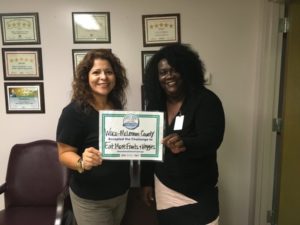 The nine local partners involved in Waco’s Healthiest Cities Challenge are Baylor University, Caritas, Live Well Waco, Mission Waco, Waco Downtown Farmers Market, Waco Foundation, City of Waco, Waco-McLennan Public Health District, and the World Hunger Relief Veggie Van.
The nine local partners involved in Waco’s Healthiest Cities Challenge are Baylor University, Caritas, Live Well Waco, Mission Waco, Waco Downtown Farmers Market, Waco Foundation, City of Waco, Waco-McLennan Public Health District, and the World Hunger Relief Veggie Van.
Waco-McLennan County has accepted the challenge to eat more fruits and veggies! Try to challenge yourself and your family to eat more fruits and veggies!
To learn more about the Challenge, please visit www.healthiestcities.org.
To see the 50 communities selected, click here and find Waco-McLennan County’s section here.
 Courtney Restivo Wollard is a lifelong Waco resident who works as Public Health Education Specialist Lead at the Waco-McLennan County Public Health District and serves as Chair for Live Well Waco, the group working to decrease obesity rates under the Prosper Waco Health Committee Initiative. She is also an alumnus of the Waco Foundation LeadershipPLENTY Institute. Courtney graduated with her Masters of Public Health from Baylor University and right away began her career as a health advocate. She is married to Kyle, with whom she has two fur babies – a Chihuahua and a Labrador. Courtney hopes to continue to create healthier environments for McLennan County residents filled with healthy eating and physical activity opportunities.
Courtney Restivo Wollard is a lifelong Waco resident who works as Public Health Education Specialist Lead at the Waco-McLennan County Public Health District and serves as Chair for Live Well Waco, the group working to decrease obesity rates under the Prosper Waco Health Committee Initiative. She is also an alumnus of the Waco Foundation LeadershipPLENTY Institute. Courtney graduated with her Masters of Public Health from Baylor University and right away began her career as a health advocate. She is married to Kyle, with whom she has two fur babies – a Chihuahua and a Labrador. Courtney hopes to continue to create healthier environments for McLennan County residents filled with healthy eating and physical activity opportunities.
The Act Locally Waco blog publishes posts with a connection to these aspirations for Waco. If you are interested in writing for the Act Locally Waco Blog, please email [email protected] for more information.
By Hope Mustakim
September 22, 2016 –
Today I sat in a room with 10 professionals from various agencies as they thoughtfully coordinated how to best serve some of the brightest yet most needful students of Waco ISD. This partnership follows a wrap-around concept in student transitions from Wiley Opportunity Center (“Alternative” or DAEP) and the Brazos High School Credit Recovery Center, back to their home campus. I observed as these passionate, astute individuals collaborated to provide holistic care for those students who demonstrate conduct that hinders them from succeeding in a traditional school setting- and often, in the “real world,” too. Most striking to me was how the students were spoken about- their privacy was respected, they were not blamed or resented, and they were not seen as “problem” kids, but children who had socio-emotional needs that for whatever reason weren’t being met. The meeting was solutions-oriented and hopeful.
Most (if not all) of these students want to be successful; what child does not? Their young lives are full of potential for restoration and achievement. With that in mind, this group of social workers, mental health professionals, and school administrators balanced the coordination of student services with the importance of parental inclusion, education, and support, recognizing the impact that the family unit has in the restoration of the child to his or her home campus and their overall success in society.
The continuum of care includes things like: on-campus crisis intervention, “triage” and case management, life skills training, intensive therapy for those dealing with trauma, and weekly check-in visits by the child’s home campus administrators. This group also shared ways students can be celebrated when they return to their campus and how they can be supported in applying their new skills to the traditional school setting. This team recognized that all children should be celebrated. And these children, with the right supports, can contribute to our campuses in ways that we don’t even realize we’re lacking.
I was incredibly inspired as I listened to this workgroup strategizing and witnessed their labor of love. A few times tears welled up in my eyes, because I know that any one of these students – by chance, by choice, or circumstance – could be my child. To see the level of humility, determination, and commitment from this partnership at Waco ISD deepened my love and appreciation for Waco and everything that makes it wonderful. #wacoiswonderfull
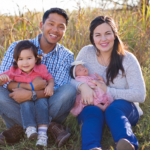 Hope Mustakim is a Community Practice graduate student intern for the BEAR Project- a collaboration between the Garland School of Social Work (Baylor) and Waco ISD. She is a mother of a toddler and an almost-toddler, and wife to an incredibly supportive partner as they pursue the good work of Loving thy Neighbor. Hope is an active member of the Waco community with experience in education, policy advocacy, and community organizing.
Hope Mustakim is a Community Practice graduate student intern for the BEAR Project- a collaboration between the Garland School of Social Work (Baylor) and Waco ISD. She is a mother of a toddler and an almost-toddler, and wife to an incredibly supportive partner as they pursue the good work of Loving thy Neighbor. Hope is an active member of the Waco community with experience in education, policy advocacy, and community organizing.
By Christina Helmick
Every time I’m asked to give my feedback, a little voice in my head says, “what will you do with my feedback? Will it be used to inform the next steps?” I feel like so many have these same thoughts after being asked for feedback. And the skepticism is understandable. If feedback is constantly asked for, but not used to inform the work, then why would people keep giving feedback? This question was at the forefront of our minds when we created the discussion-based breakout sessions at the 2016 Prosper Waco Summit.
On Sept. 19, more than 500 community members came together at the Waco Convention Center from 4-8PM for the 2016 Summit. During the event, participants heard a brief overview of the initiative’s history, along with some of the efforts currently being implemented in the Waco community and what community partners are involved in those efforts. Following the opening session, participants were strategically placed in three different rooms to ensure cross-sector representation of Education, Health and Financial Security were at each table.
During the breakout sessions we asked participants to talk amongst their table, and then the larger room, about solutions our community can implement to address the community’s goals. We worked hard to compile the feedback from the different breakout rooms. You can click here to read all of the feedback compiled from the breakout sessions, and if you view the pictures below, you can see the solutions that were identified more than once throughout the rooms.
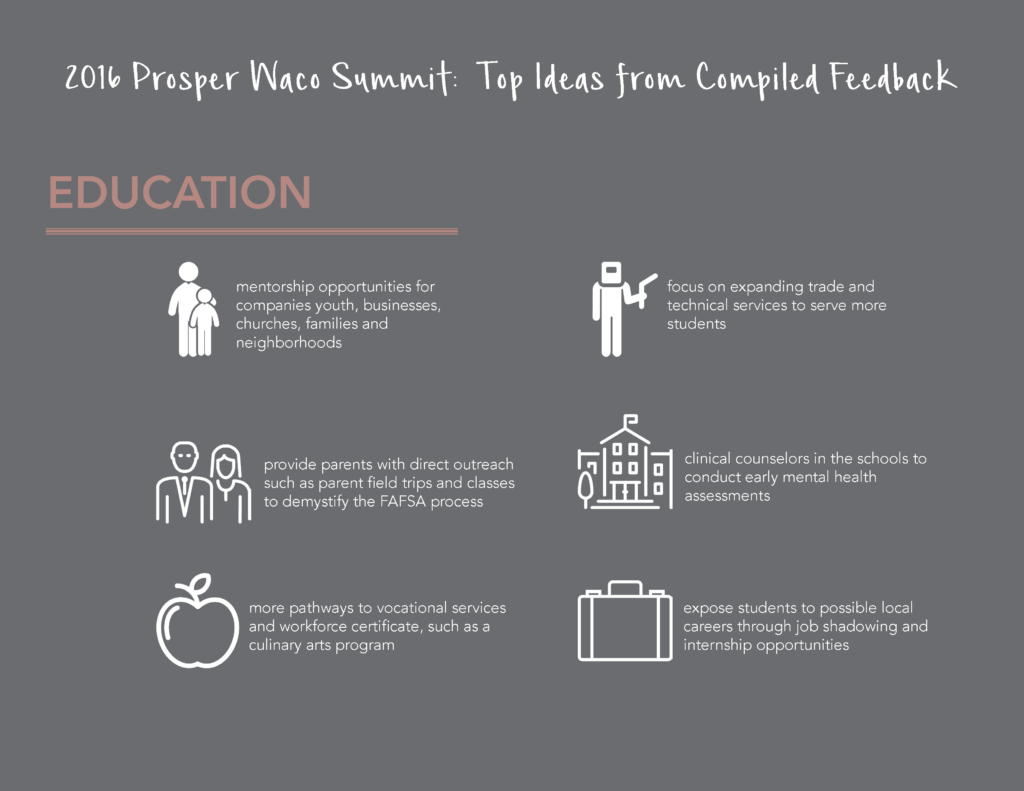
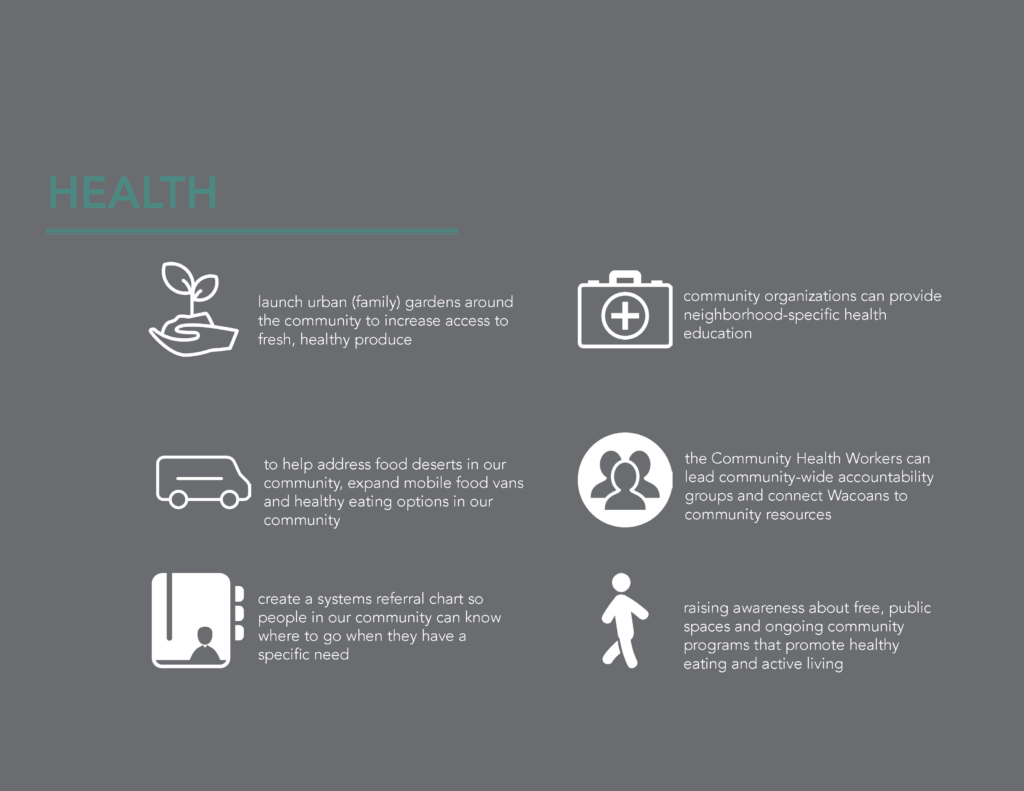
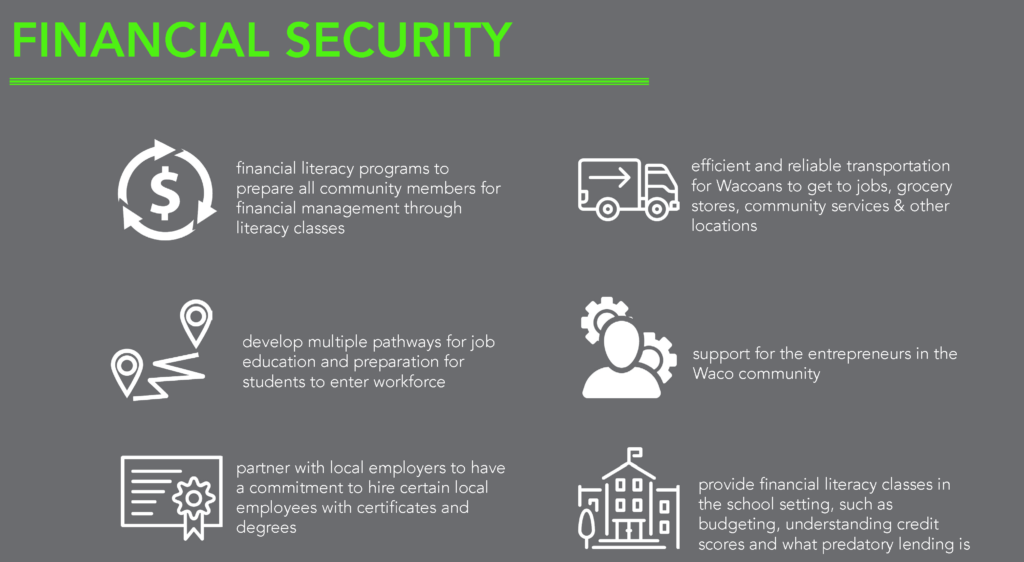
It is important to remember that the above solutions weren’t the only solutions people identified! With more than 500 community members identifying solutions, there were some solutions that appeared across all three rooms, which we captured in the above diagrams.
So the burning question remains…what will be done with this feedback?
Post the Summit, all three Steering Committees met to debrief about the event. During the meetings, committee members reviewed a document that captured all of the feedback, along with a separate document that had solutions that were specific to Education, Health and Financial Security. Some of the solutions crossed one or more strand of the initiative, which furthers the notion that the three aims of the initiative are interconnected.
After having small table discussions, the floor opened up for discussion around what support will be needed from the community to implement some of the solutions identified. Steering Committee members identified bringing other partners to the table, funding and learning more about existing programs in the Waco community as different types of support that would be needed. The feedback captured at the Summit will also be used to inform the work of the working groups by connecting what the community has identified as a solution to the work that is being implemented within the initiative.
We will also utilize the community’s feedback to help inform the work of our Community Engagement Council. During the house meetings the council hosts, they ask for thoughts and perspectives about the solutions identified during the Summit. The Council will continue to ask community members about their personal ideas and solutions to reach the community’s goals by 2020.
We understand not everyone was able to come to the Summit and voice their thoughts, ideas and solutions, which is why we welcome (and strongly encourage!) you to send us your thoughts by contacting us via email [email protected] or calling 254-741-0081.
As always, this work is driven forward by the hard work of our community and there is always an open door for you to become involved and share your thoughts. If you’d like to become involved, email Jillian or call 254-741-0081.
 Christina Helmick is the director of communication at Prosper Waco. She is a recent graduate of Baylor University with a BA in Journalism, Public Relations & New Media. Originally she is from Washington, D.C., but has stayed in Waco post-graduation. She is an active mentor at J.H. Hines Elementary School, enjoys spending time with her family and watching Baylor football. Sic ’em Bears!
Christina Helmick is the director of communication at Prosper Waco. She is a recent graduate of Baylor University with a BA in Journalism, Public Relations & New Media. Originally she is from Washington, D.C., but has stayed in Waco post-graduation. She is an active mentor at J.H. Hines Elementary School, enjoys spending time with her family and watching Baylor football. Sic ’em Bears!
The Act Locally Waco blog publishes posts with a connection to these aspirations for Waco. If you are interested in writing for the Act Locally Waco Blog, please email [email protected] for more information.
By Courtney Restivo Wollard
I am the Public Health Education Specialist Lead for the Health Education Program at the Waco-McLennan County Public Health District and for the past two years, the department has been working on projects under the Texas Healthy Communities Program, a program of the Texas Department of State Health Services.
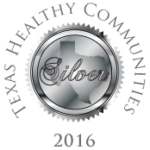 This program helps communities assess their existing environments and implement change in local environmental and policy infrastructure. The program encourages the adoption of priority public health practices to reduce risk factors for chronic diseases. Communities that promote recognized best practices for preventing and controlling cardiovascular disease, stroke and other chronic diseases are then recognized by the program. This year, the Waco-McLennan County Health District has achieved Silver level status for the county for preventing and controlling heart disease, stroke and other chronic diseases. This is an improvement from Honorable Mention in 2014.
This program helps communities assess their existing environments and implement change in local environmental and policy infrastructure. The program encourages the adoption of priority public health practices to reduce risk factors for chronic diseases. Communities that promote recognized best practices for preventing and controlling cardiovascular disease, stroke and other chronic diseases are then recognized by the program. This year, the Waco-McLennan County Health District has achieved Silver level status for the county for preventing and controlling heart disease, stroke and other chronic diseases. This is an improvement from Honorable Mention in 2014.
Communities are assessed on eight health indicators to determine recognition as a Texas Healthy Community: physical activity, healthy food access, mother-friendly worksites, healthy worksites, healthy schools, tobacco control, healthcare quality, and cardiac and stroke response. Some examples of activities within these indicators include:
- Offering physical activity areas
- Offering healthy eating options
- Mother-friendly worksites promoting breastfeeding
- An evidence-based health curriculum in schools
- 100% smoke free city ordinance
- EMS system which maintains a rapid response time for cardiac events
- Treatment of stroke and a medical emergency in the community with appropriate acute stroke treatment protocols in place
The biggest improvements that increased our scores from 2014 included the implementation of the 100% Comprehensive Smoke Free Waco Ordinance passed in July 2015 by City Council that went into effect January 2016 as well as an increase in the number of worksites designated as mother-friendly.
Back in 2014, there were only 2 recognized mother friendly designated worksites whereas in 2016, there are 13 designated mother-friendly worksites. A worksite is considered Mother Friendly if there is a policy in place to support employees choosing to breastfeed their infants. To determine if your worksite could become a mother friendly worksite, you can visit the Texas Mother Friendly Website.
We have received confirmation that we were approved for an additional year of the program funding, which will go towards improvements in several different parks in the city to improve physical activity opportunities for residents. (See the accompanying table for the scores received within each health indicator.) Hopefully, next year, we can reach the Gold Status for the program!

 Courtney Restivo Wollard is a lifelong Waco resident who works as Public Health Education Specialist Lead at the Waco-McLennan County Public Health District and serves as Chair for Live Well Waco, the group working to decrease obesity rates under the Prosper Waco Health Committee Initiative. She is also an alumnus of the Waco Foundation LeadershipPLENTY Institute. Courtney graduated with her Masters of Public Health from Baylor University and right away began her career as a health advocate. She is married to Kyle, with whom she has two fur babies – a Chihuahua and a Labrador. Courtney hopes to continue to create healthier environments for McLennan County residents filled with healthy eating and physical activity opportunities.
Courtney Restivo Wollard is a lifelong Waco resident who works as Public Health Education Specialist Lead at the Waco-McLennan County Public Health District and serves as Chair for Live Well Waco, the group working to decrease obesity rates under the Prosper Waco Health Committee Initiative. She is also an alumnus of the Waco Foundation LeadershipPLENTY Institute. Courtney graduated with her Masters of Public Health from Baylor University and right away began her career as a health advocate. She is married to Kyle, with whom she has two fur babies – a Chihuahua and a Labrador. Courtney hopes to continue to create healthier environments for McLennan County residents filled with healthy eating and physical activity opportunities.
The Act Locally Waco blog publishes posts with a connection to these Aspirations for Waco. If you are interested in writing for the Act Locally Waco Blog, please email [email protected] for more information.
Resources:
https://www.dshs.texas.gov/heart/AbouttheTXHCProgram.aspx
Other communities recognized at the Gold, Silver, Bronze, or Honorable Mention Level this year:
- Gold Level: Harris County, City of Houston, Nueces County, Webb County
- Silver Level: Angelina County, Lubbock County, McLennan County, Smith County, Tom Green County, Wichita County
- Bronze Level: Hidalgo County, Lamar County, Parker County, Taylor County, Victoria County
- Honorable Mention: City of Red Oak, City of Waxahachie, El Paso County, Jasper County, Nacogdoches County, Newton County, Waller County, Wood County
